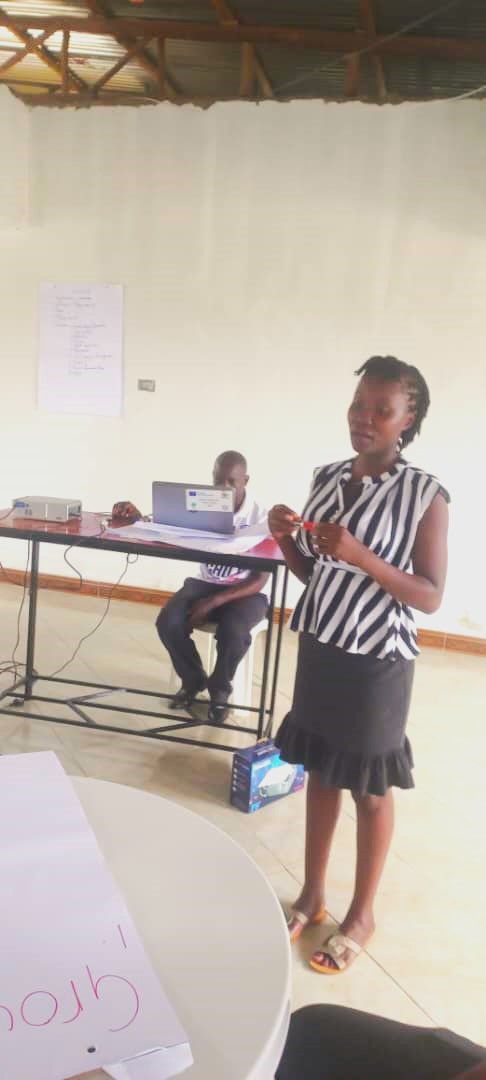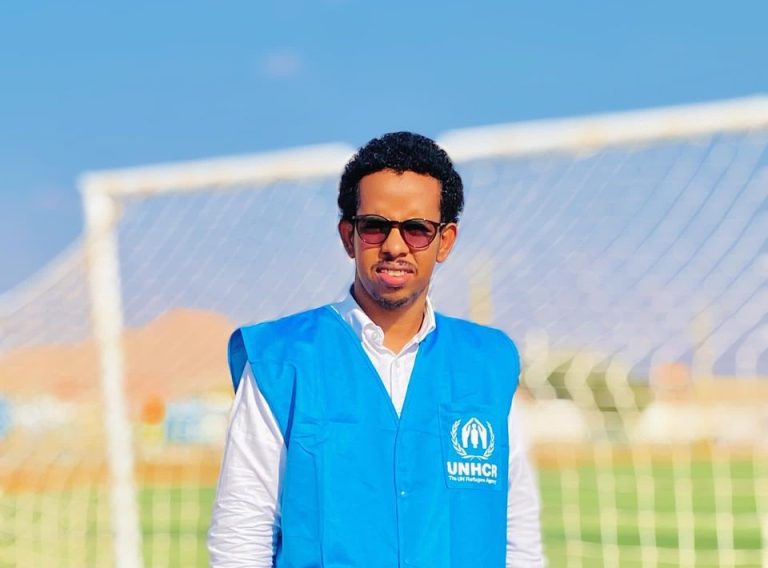Tell us about yourself
My name is Sylvia Nakiirya, a Ugandan in the humanitarian sector. I work in Monitoring & Evaluation (M&E) in Bidibidi and Kiryandongo Refugee Settlements. I am an ardent human rights scholar and a believer in the world as a cosmopolitan village.
What does your role involve?
My role involves documenting and reporting on work in the humanitarian response sector. I also support learning through evaluation and ensuring timely responses to feedback in order to ensure that our response to the humanitarian crises in these places are accountable and quality bound.
How did you first become involved in humanitarian work?
During the emergency phase of Bidibidi Refugee settlement in 2016, I worked as a volunteer.

How did you first hear about our digital learning platform Kaya, and how long have you been using it?
I first heard about Kaya when I needed to better understand how data collection can be more inclusive and sensitive to the needs of Persons with Disability. I’ve been using Kaya for over seven months.
What is your favourite course on Kaya and why?
Collecting Data for the Inclusion of Persons with Disabilities in Humanitarian Action – a self-paced course designed to support learners in understanding, planning for and using the Washington Group Questions (WGQs) to identify persons with disabilities in humanitarian action. The course is available in English, French and Arabic and is provided by Humanity and Inclusion – available for free on Kaya.
Has learning on Kaya changed your outlook or approach to humanitarian work?
It has greatly improved my skillset within the humanitarian field. It has also supported me to continue being progressive and not stuck with old information.
Kaya is a very insightful platform that is necessary for all members operating in humanitarian settings to have access and be able to equip themselves with the necessary information to enable them be relevant and offer quality services to participants and beneficiaries.

Kaya is a very insightful platform that is necessary for all members operating in humanitarian settings to have access and be able to equip themselves with the necessary information to enable them be relevant and offer quality services to participants and beneficiaries.”
The aim of featuring HLA learners on our website is to inform and inspire humanitarians and the HLA community. These articles do not constitute endorsement or recommendation of the individuals featured. Views expressed by members are solely their own.



